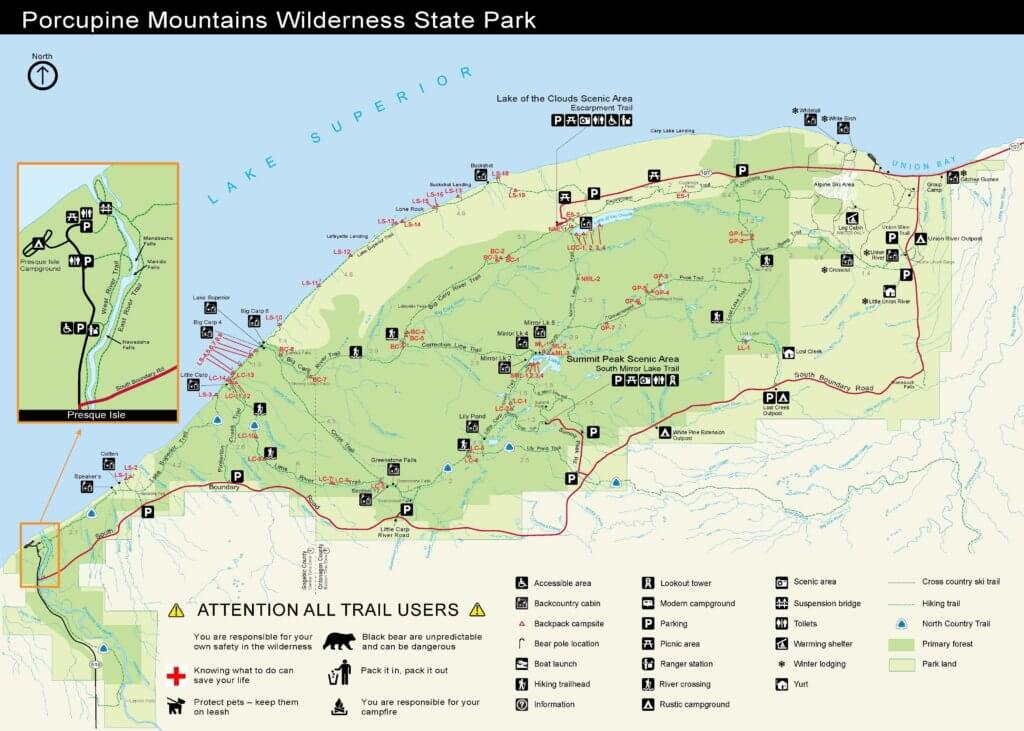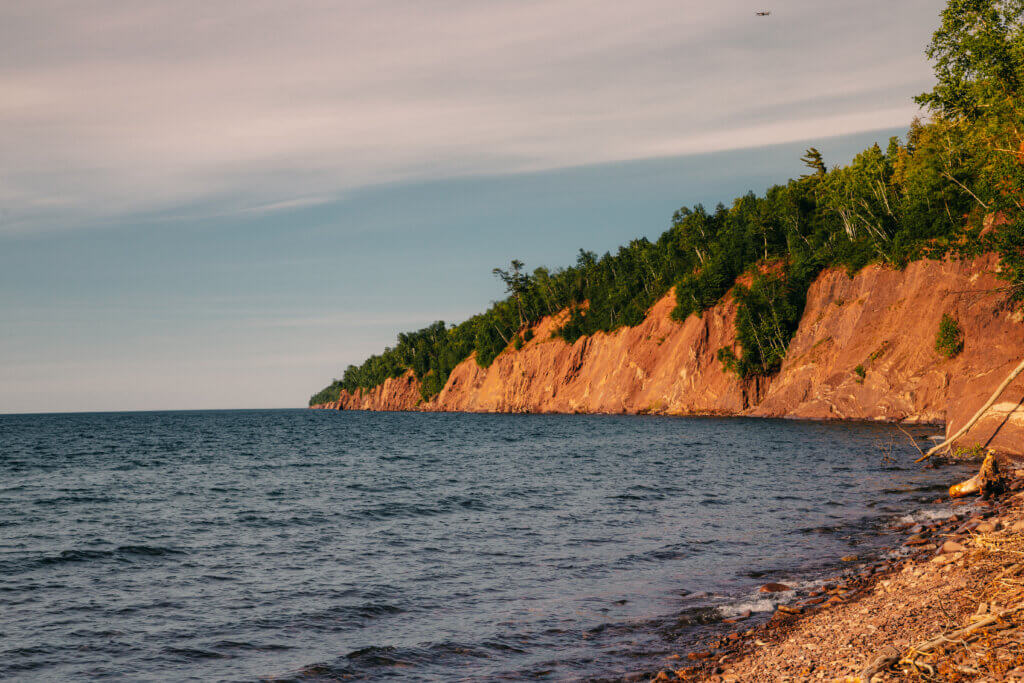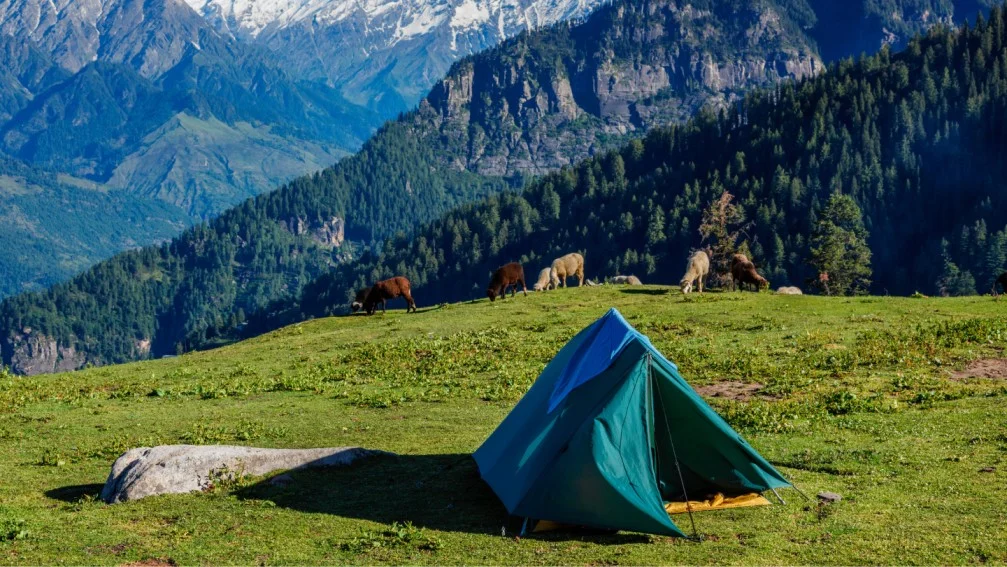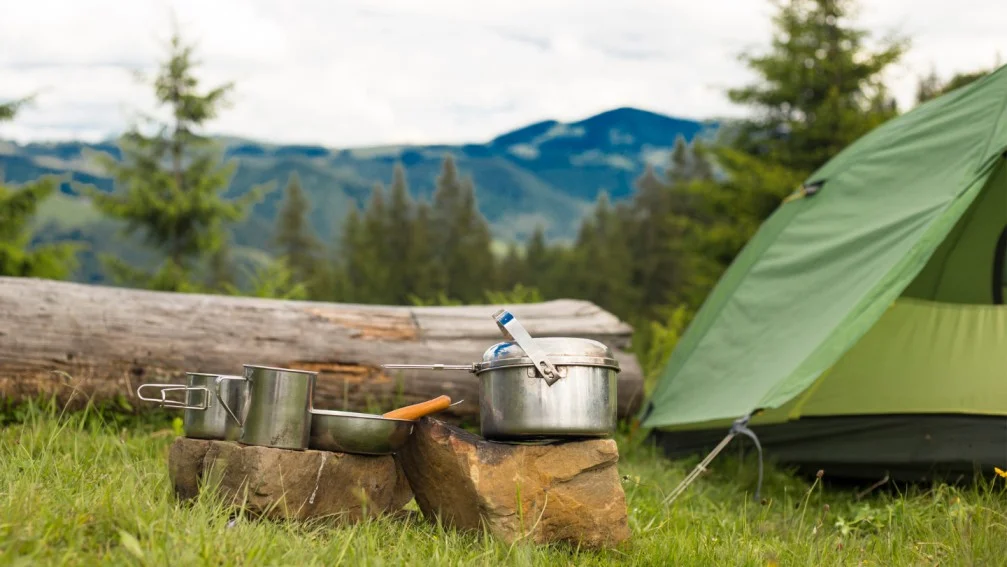You cannot camp wherever you want in the Porcupine Mountains. Camping is only allowed in designated areas.
Porcupine Mountains Wilderness State Park, located in Michigan’s Upper Peninsula, is a top destination for nature lovers. The park offers stunning views, miles of hiking trails, and diverse wildlife. To preserve this natural beauty, camping is restricted to designated areas only.
This helps protect the environment and ensures a safe experience for all visitors. Whether you prefer rustic campsites or modern amenities, the park has options to suit your needs. Always check park regulations and obtain necessary permits before setting up camp. Respect the rules to enjoy a memorable and responsible outdoor adventure.
Introduction To Porcupine Mountains
The Porcupine Mountains are a stunning wilderness area in Michigan. They offer a unique camping experience. The mountains cover over 60,000 acres of old-growth forest. This area is perfect for those who love nature and adventure. You can enjoy hiking, fishing, and wildlife watching. The Porcupine Mountains are a true gem for outdoor enthusiasts.
What To Expect
Expect to find diverse landscapes. There are dense forests, clear lakes, and cascading waterfalls. The area also has rugged trails and scenic overlooks. You can see breathtaking views of Lake Superior. Wildlife is abundant, including deer, bears, and various birds. Camping spots range from rustic to modern, catering to all types of campers.
- Dense forests with towering trees
- Clear lakes ideal for fishing
- Cascading waterfalls that are picture-perfect
- Rugged trails for hiking enthusiasts
- Scenic overlooks with views of Lake Superior
- Abundant wildlife including deer and bears
- Camping spots from rustic to modern
Why It’s Popular
The Porcupine Mountains are popular for many reasons. The stunning natural beauty attracts visitors year-round. The area offers a variety of outdoor activities. Hiking trails range from easy to challenging. You can also find excellent spots for fishing and kayaking. Wildlife enthusiasts enjoy the chance to see diverse species. The park’s remote location provides a peaceful escape from city life. The mountains also hold historical significance, adding to their allure.
| Reason | Details |
|---|---|
| Natural Beauty | Stunning views and landscapes |
| Outdoor Activities | Hiking, fishing, kayaking |
| Wildlife | Abundant and diverse species |
| Remote Location | Peaceful escape from the city |
| Historical Significance | Rich history adds to the allure |

Credit: travelironwood.com
Camping Regulations
Camping in the Porcupine Mountains is a unique experience. But, it’s essential to follow the regulations to protect the park’s natural beauty. Here is a detailed guide on where you can and cannot camp.
Permitted Areas
Several areas in the Porcupine Mountains allow camping. These include:
- Designated Campgrounds: These are developed sites with amenities.
- Backcountry Campsites: These are for those seeking a wilder experience.
- Cabins and Yurts: These provide a more comfortable stay.
Designated Campgrounds include Union Bay and Presque Isle. They offer facilities like restrooms and picnic tables. Backcountry Campsites are spread throughout the park. They require a permit and are marked on park maps. Cabins and Yurts are available for rent. They offer a cozy shelter in the wilderness.
Restricted Zones
Some areas in the Porcupine Mountains are off-limits for camping. These zones protect wildlife and natural habitats. Restricted zones include:
- Research Natural Areas: These are sensitive ecological zones.
- Historical Sites: These areas preserve cultural heritage.
- Scenic Trails: Camping on trails can damage the environment.
Research Natural Areas are crucial for scientific study. Camping is not allowed here to preserve the ecosystems. Historical Sites maintain the park’s rich history. Avoid camping to protect these landmarks. Scenic Trails should remain undisturbed for all visitors to enjoy.
Follow these regulations for a safe and enjoyable camping experience in the Porcupine Mountains. Respecting these rules helps preserve the park for future generations.
Types Of Camping
Porcupine Mountains Wilderness State Park offers various camping experiences. You can enjoy both backcountry and designated campground options. Each type offers unique adventures and comforts.
Backcountry Camping
Backcountry camping in Porcupine Mountains allows for a true wilderness adventure. You can explore remote areas far from crowds. This type of camping requires a permit, which you can get from the park office.
Backcountry sites are often secluded. They provide a peaceful environment to connect with nature. You’ll need to carry all your gear and be self-sufficient.
Here’s a quick checklist for backcountry camping:
- Tent and sleeping bag
- Portable stove and cooking gear
- Food and water supplies
- First aid kit
- Map and compass
Designated Campgrounds
Designated campgrounds in the Porcupine Mountains offer more amenities. These sites are ideal for families and those new to camping. You can find facilities like restrooms, water stations, and picnic tables.
There are several campgrounds in the park:
| Campground | Amenities |
|---|---|
| Union Bay Campground | Restrooms, showers, electric hookups |
| Presque Isle Campground | Vault toilets, water pumps |
| Rustic Cabins | Cabins with basic facilities |
These campgrounds make camping accessible and convenient. You can enjoy a more comfortable camping experience with fewer preparations.
Necessary Permits
Exploring the Porcupine Mountains is an exciting adventure. However, securing the necessary permits is crucial. These permits ensure that your camping trip is legal and safe.
How To Obtain
Obtaining a permit for camping in the Porcupine Mountains is simple. Follow these steps:
- Visit the official Michigan Department of Natural Resources website.
- Navigate to the permits section.
- Select the Porcupine Mountains from the list.
- Fill in the required information.
- Submit the form and make payment.
Costs And Fees
The cost of permits varies. Here is a breakdown:
| Type of Permit | Cost |
|---|---|
| Backcountry Camping Permit | $15 per night |
| Group Camping Permit | $50 per night |
| Annual Pass | $80 per year |
Permits ensure the park remains beautiful for future campers. Pay attention to the permit rules to avoid fines.
Essential Gear
When camping in Porcupine Mountains, having the right gear is crucial. The right equipment ensures a safe and enjoyable adventure. Below are key items you need.
Camping Equipment
- Tent: Choose a durable, weather-resistant tent. It should be easy to set up.
- Sleeping Bag: A warm sleeping bag is essential. Check the temperature rating.
- Sleeping Pad: This provides insulation and comfort.
- Backpack: Use a backpack with enough space for all your gear.
- Cooking Gear: Bring a portable stove, fuel, and lightweight cookware.
- Water Filter: Clean water is vital. A water filter or purification tablets are a must.
Safety Essentials
- First Aid Kit: A comprehensive first aid kit can handle minor injuries.
- Map and Compass: These help in navigation. A GPS device can also be useful.
- Headlamp: A headlamp with extra batteries is important for night visibility.
- Fire Starter: Waterproof matches or a lighter are needed for starting fires.
- Bear Spray: Essential for areas with wildlife. It ensures protection from bears.
- Multi-tool: A multi-tool can be handy for various tasks.

Credit: www.amazon.com
Wildlife Precautions
Camping in the Porcupine Mountains offers breathtaking scenery and unique experiences. However, campers must be cautious about wildlife. Understanding the local fauna is crucial for a safe adventure. Follow these wildlife precautions to ensure an enjoyable trip.
Animal Encounters
The Porcupine Mountains are home to various wildlife. You might encounter deer, foxes, or even bears. Always maintain a safe distance from animals. Never approach or feed them. Use binoculars to watch them from afar.
If you encounter a bear, stay calm. Do not run. Make yourself look big by raising your arms. Speak in a firm voice to let the bear know you are human. Slowly back away while facing the bear.
Food Storage
Proper food storage is essential to avoid attracting wildlife. Use bear-proof containers for all food and scented items. Never leave food unattended at your campsite. Store containers at least 100 yards away from your sleeping area.
Hang food bags from a tree if bear-proof containers are not available. Ensure the bag is at least 12 feet off the ground and 6 feet away from the trunk. This method helps keep animals away from your food supply.
Here’s a quick checklist for food storage:
- Use bear-proof containers.
- Store containers 100 yards away from the tent.
- Hang food bags if needed.
- Keep the bag 12 feet off the ground.
- Place the bag 6 feet from the tree trunk.
Best Camping Spots
When exploring the Porcupine Mountains, finding the best camping spots can enhance your adventure. The area offers diverse landscapes and unique experiences. Whether you prefer scenic views or secluded hideaways, the Porcupine Mountains have something for everyone.
Scenic Locations
Some campsites offer stunning landscapes. You can wake up to beautiful sunrises. One popular site is Lake of the Clouds. It provides breathtaking views and serene waters.
Another favorite is the Summit Peak. This spot offers panoramic views of the entire park. The trek to the top is worth it.
Here’s a table of scenic locations:
| Location | Features |
|---|---|
| Lake of the Clouds | Beautiful sunrises, serene waters |
| Summit Peak | Panoramic views, easy trails |
Secluded Areas
If you prefer peace and quiet, the Porcupine Mountains have secluded areas. Union Bay Campground offers privacy with a touch of nature. It’s perfect for a quiet retreat.
Big Carp River offers isolation and natural beauty. The trails here are less crowded. You can enjoy a more intimate connection with nature.
- Union Bay Campground: Offers privacy and natural beauty.
- Big Carp River: Less crowded, intimate connection with nature.

Credit: travelironwood.com
Tips For A Great Experience
Embarking on a camping adventure in the Porcupine Mountains is a thrilling experience. To ensure your trip is safe and enjoyable, follow these tips for a great experience. Whether you’re a seasoned camper or a beginner, these insights will help you make the most of your time in nature.
Weather Considerations
Weather in the Porcupine Mountains can change rapidly. Always check the forecast before you go. Pack clothing for various conditions. Include layers, rain gear, and warm clothing.
Essential weather gear:
- Waterproof jacket
- Thermal wear
- Extra socks
Temperatures can drop at night. Bring a high-quality sleeping bag. A weather-appropriate tent is also crucial. Ensure your tent is waterproof and sturdy.
Leave No Trace Principles
The Porcupine Mountains are a pristine natural area. Follow the Leave No Trace principles to keep it that way.
- Plan ahead and prepare.
- Travel and camp on durable surfaces.
- Dispose of waste properly.
- Leave what you find.
- Minimize campfire impact.
- Respect wildlife.
- Be considerate of other visitors.
Pack out all trash, even biodegradable items. Use established campsites to protect fragile ecosystems. Avoid disturbing wildlife. Keep a safe distance and never feed animals.
By following these tips, your Porcupine Mountains camping trip will be memorable and respectful of nature. Enjoy your adventure!
Respecting nature and following camping regulations in the Porcupine Mountains is crucial. Choose designated campsites to ensure safety. This preserves the environment for future visitors. Always check local guidelines before planning your adventure. Happy camping and enjoy the natural beauty responsibly!
FAQs:
Can I Camp Anywhere In Porcupine Mountains?
No, you cannot camp anywhere. Camping is only allowed in designated campgrounds and backcountry sites.
Do I Need A Permit To Camp?
Yes, you need a permit for both frontcountry and backcountry camping. Obtain permits online or at visitor centers.
Are Campfires Allowed In Porcupine Mountains?
Yes, campfires are allowed but only in designated fire rings. Always follow park regulations and safety guidelines.
How Do I Reserve A Campsite?
You can reserve a campsite online through the Michigan DNR website. Early booking is recommended.


